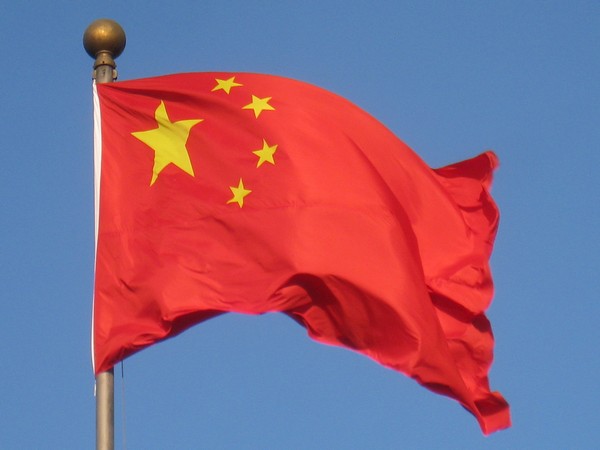Suicide bombings in Afghanistan and Pakistan underscore a rising threat that China faces from extremists in central Asia since the US left the region last year, the leading US advisory panel on China policy was told on Thursday.
Witnesses told the US-China Economic and Security Review Commission (USCC) that instead of a chance for China to fill a power vacuum left after the chaotic US withdrawal from Afghanistan, the animosity that extremists and separatists are directing at China has increased.
Jennifer Brick Murtazashvili of the University of Pittsburgh’s Centre for Governance and Markets said that anger at China in central Asia did not mean the US was welcome:
“The US lost so much credibility because of the way it left Afghanistan.” Photo: US-China Economic and Security Review Commission
Jennifer Brick Murtazashvili of the University of Pittsburgh’s Centre for Governance and Markets said that anger at China in central Asia did not mean the US was welcome:
“The US lost so much credibility because of the way it left Afghanistan.” Photo: US-China Economic and Security Review Commission
Raffaello Pantucci, a senior fellow at Singapore’s S. Rajaratnam School of International Studies, said that the Islamic State Khorasan (Isis-K) had identified the perpetrator of the suicide bomb attack on worshippers in a mosque in the Afghan city of Kunduz in October as a Uygur.
The Isis affiliate “was taking note of Chinese support for its enemy the Taliban” and should be seen as “a big red flag”, Pantucci said.
US policymakers are paying more attention to the growth of China’s geopolitical influence through programmes like the Belt and Road Initiative (BRI) – which includes the China-Pakistan Economic Corridor (CPEC) – as Washington’s relationship with Beijing has frayed on multiple fronts.
The USCC has convened hearings into other areas of concern, including how to deter mainland China’s military from invading Taiwan and countering Chinese cyber espionage and cyberwarfare capabilities.
However, violence directed at Chinese nationals shows that Beijing’s strategy of engaging with any government seeking infrastructure investment did little to engender trust in the region and may be backfiring, witnesses said.
“Hedging towards Afghanistan has been China’s policy basically, for the past decade,” Pantucci said. “China essentially chose to engage with Afghanistan on every particular front. That was with the United States, it was with regional partners, it was through multilateral institutions like the [Shanghai Cooperation Organisation] or other mini lateral ones they created around Afghanistan, as well as with opposing factions.”
CPEC, which was established in 2015, tripled the number of Chinese workers in Pakistan to a peak of 60,000 in 2018.
Responsibility for the attack that killed three Chinese citizens and their Pakistani driver was claimed by the Majeed Brigade, the suicide squad of the Baloch Liberation Army – an ethnic Baloch separatist group behind other recent attacks on Chinese nationals working in Pakistan.
“It used to be the Uygur militants that tended to be responsible for attacks on Chinese diplomats or Chinese businessmen in Kyrgyzstan,” Pantucci added. “Increasingly we see Kyrgyz in general being quite angry towards the Chinese … and we can see similar narratives in Kazakhstan.”
Still, anger against Chinese does not mean that Americans are welcome, Jennifer Brick Murtazashvili, founding director at the University of Pittsburgh’s Centre for Governance and Markets, said.
“The US lost so much credibility because of the way it left Afghanistan,” she said. “Regardless of how you may feel about the intervention, regardless of how you may feel about the withdrawal of decision to withdraw the way the US left, I think it left a very bitter taste in the mouth of many people in the region.”
Muhammad Tayyab Safdar, a University of Virginia researcher, cited last month’s lethal attack on a Confucius Institute in Karachi, Pakistan, as further evidence of rising anger at China’s regional presence. Photo: US-China Economic and Security Review Commission
Muhammad Tayyab Safdar, a University of Virginia researcher, cited last month’s lethal attack on a Confucius Institute in Karachi, Pakistan, as further evidence of rising anger at China’s regional presence. Photo: US-China Economic and Security Review Commission
Murtazashvili argued that the only way for the US to wield more influence in central Asia would be to work multilaterally, supporting initiatives that have broad regional support, and thus helping nations there develop independent foreign policies.
“The US strategy of isolating the Taliban with sanctions and punishing them to specific outcomes does not seem to be working,” she said.
“With a distracted Russia and the de-Americanization of the region, countries in the region have greater agency than at any time in recent history,” Murtazashvili added.
“The US should diversify its tool kit and identify … solutions that go beyond Taliban conditionality and sanctions to one that incentivise countries in the region to find ways to cooperate over economic region.”

